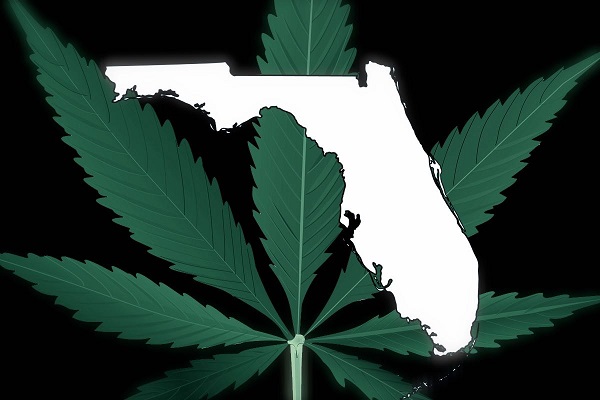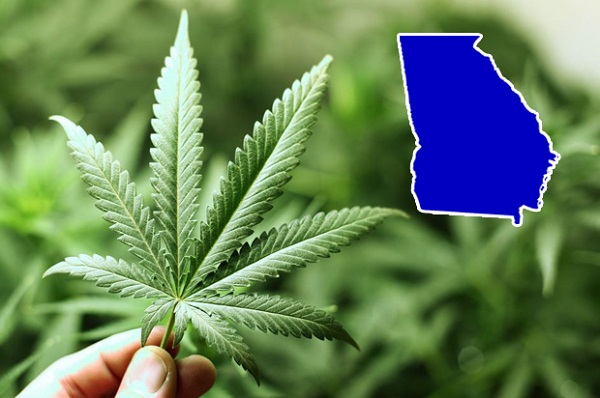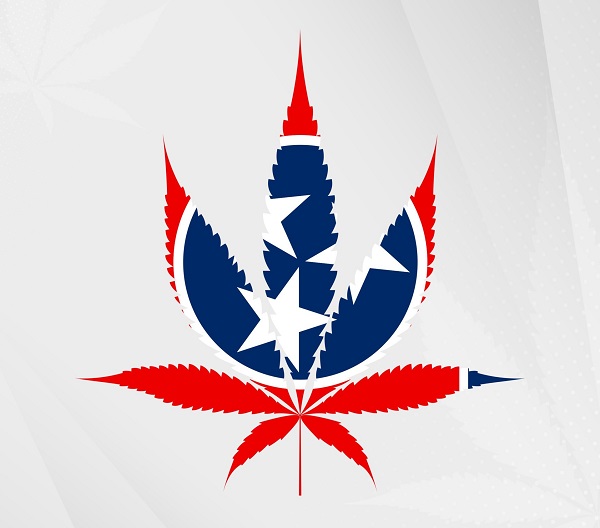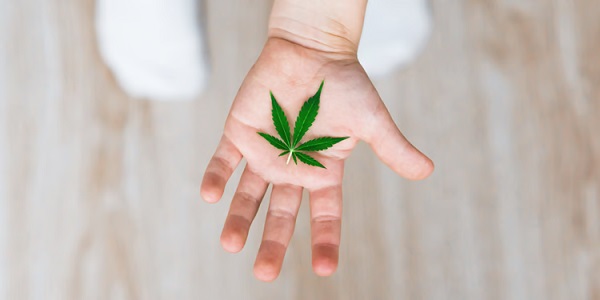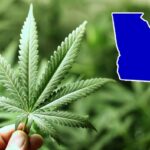The legalization landscape surrounding cannabis in the United States has undergone a seismic shift in recent years. As more states reevaluate their stance on the plant, the complex and evolving legal status of its various compounds has left many individuals, particularly those in Florida, with lingering questions about its legality.
Among the many constituents of cannabis, delta-9-tetrahydrocannabinol, or THC, remains one of the most scrutinized and debated components. THC is the psychoactive compound responsible for the “high” associated with marijuana use. In the Sunshine State, Florida, where a medical marijuana program was established in 2016, understanding the legality of THC is not as straightforward as it may seem.
This article aims to shed light on the intricacies of THC legality in Florida.
The Legal Landscape of Cannabis in Florida
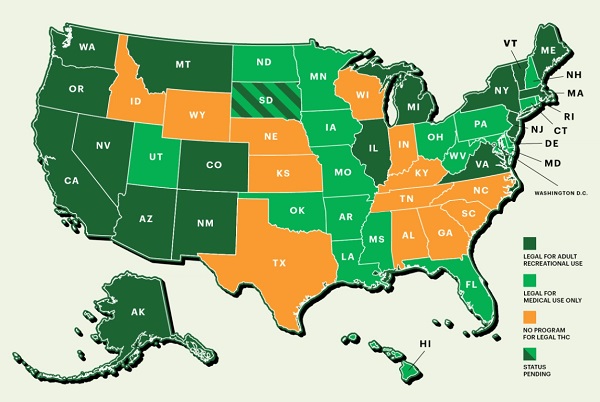
When it comes to the question of whether marijuana is legal in Florida, the answer remains a resounding no. The State of Florida continues to prohibit the recreational use of marijuana, making it illegal to cultivate, distribute, or possess this substance. Florida’s cannabis regulations are comprehensive and include extensive provisions outlining the consequences individuals may encounter if found guilty, which range from potential incarceration and fines to probation.
Whether an individual is charged with a misdemeanor or a felony hinges on various factors, including the quantity of marijuana involved, the level of THC concentration in the substance, and the circumstances surrounding the arrest. It’s important to note that your location at the time of arrest can also play a pivotal role in the legal outcomes related to marijuana-related offenses in Florida.
Decriminalization of Marijuana in Florida
Since 2015, certain counties and municipalities within Florida have taken the progressive step of decriminalizing small-scale marijuana possession. However, it’s crucial to emphasize that these reforms are geographically limited and do not extend to the entire State of Florida.
In these designated areas, individuals found with up to 20 grams of cannabis face civil citations instead of criminal charges. The fines associated with these marijuana citations are as follows: $75-$100 for a first offense, $150-$250 for a second offense, and $300-$500 for a third offense. Depending on the locality, individuals may also have the option to fulfill their penalty through community service or enrollment in a drug education program.
The following counties and municipalities have approved this form of decriminalization for small-scale marijuana possession:
- Miami-Dade County
- Broward County
- Palm Beach County
- Tampa
- Orlando
- Miami Beach
- Hallandale Beach
- Key West
- West Palm Beach
- Volusia County
- Osceola County
- Alachua County
- Port Richey
- Cocoa Beach
- Sarasota
It’s important to recognize that while these progressive policies exist in select regions of Florida, the state as a whole continues to maintain stricter regulations regarding marijuana possession and use.
Florida’s Marijuana Penalties
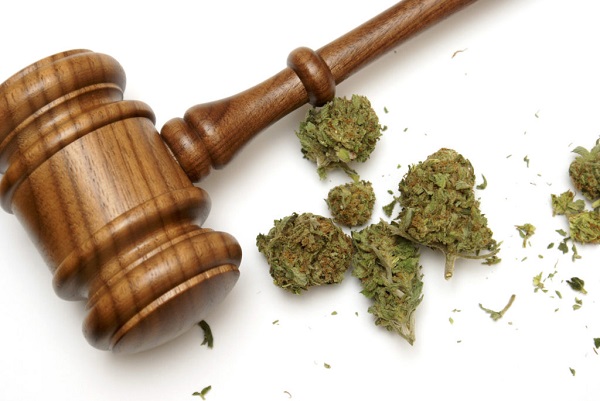
In the realm of Florida’s stringent marijuana laws, the consequences you face are closely tied to the quantity of marijuana discovered in your possession. If you’re caught with less than 20 grams, you’re looking at a first-degree misdemeanor charge. However, if the amount exceeds 20 grams, it escalates to a felony offense. It’s a stark reality that the greater the quantity, the more severe the potential penalties – a stark combination of substantial fines and the looming prospect of extended prison sentences.
The good news is, if you secure the services of a skilled criminal defense attorney, you’ll have a knowledgeable ally in your corner. Your attorney can help you steer clear of these daunting penalties. Depending on the unique particulars of your case, they may negotiate to have the charges reduced or, in some fortunate instances, entirely dismissed. Your choice of attorney can make all the difference in your legal battle against Florida’s marijuana regulations.
Marijuana Possession Laws in Florida
Florida’s regulations on marijuana possession come with varying degrees of fines and potential incarceration, depending on the amount involved:
- For quantities less than 20 grams, you could face a maximum fine of $1,000 and a potential prison sentence of up to one year.
- If the amount exceeds 20 grams but doesn’t exceed 25 pounds, the maximum sentence can be as long as five years in prison, accompanied by fines reaching up to $5,000.
However, it’s essential to note that cultivating marijuana plants, whether for personal use or distribution, constitutes a felony offense in Florida, even if it’s your first offense. The penalties for marijuana cultivation are structured as follows:
- Cultivating up to 25 plants constitutes a third-degree felony, with potential incarceration of up to 5 years and fines that could reach $5,000.
- Should the number of plants surpass 25 on your property, you’re facing a second-degree felony charge. This carries a potential imprisonment term of up to 15 years and fines as high as $10,000.
If the authorities discover 300 plants or more in your possession, be prepared for mandatory minimum penalties, substantially heftier fines, and significantly longer periods of incarceration. Florida’s stance on marijuana cultivation is unequivocally strict, making it imperative to understand the gravity of the consequences associated with these offenses.
The Serious Consequences of Marijuana Sales in Florida
In the state of Florida, engaging in the sale of marijuana comes with exceptionally severe penalties, especially when dealing with larger quantities. If an individual is caught with more than 25 pounds, they can expect to face drug trafficking charges. Here’s a breakdown of the penalties based on the quantity involved:
- More than 25 pounds but less than 2,000 pounds (or 300-2000 plants): This offense is classified as a first-degree felony. The consequences include a hefty $25,000 fine and a mandatory minimum prison sentence of 3 years.
- 2,000 pounds or more but less than 10,000 pounds (or 2,000 – 10,000 plants): Similarly, this constitutes a first-degree felony with a steeper $50,000 fine. Moreover, individuals convicted in this category are subject to a mandatory minimum prison sentence of 7 years.
However, if the quantity involved in the sale exceeds a staggering 10,000 pounds or plants, the penalties become even more severe:
- More than 10,000 pounds or plants: Here, the mandatory minimum fine skyrockets to a staggering $200,000, and the prison term escalates to a grueling 15 years.
It is essential to comprehend the gravity of these consequences when contemplating any involvement in the sale of marijuana in Florida. The state’s stringent approach to marijuana trafficking underscores the need to exercise caution and adhere to the law.
Hash and Concentrates in Florida
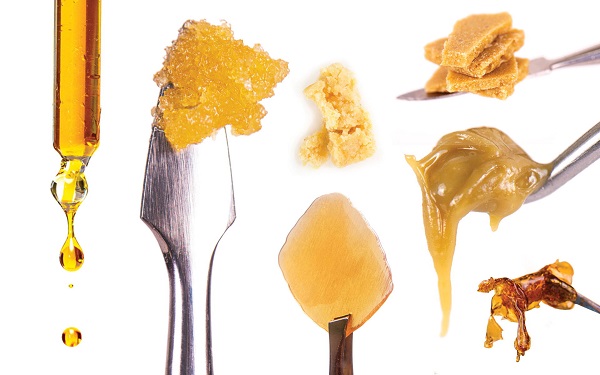
In Florida, the possession of hash is treated as a felony offense, primarily because of its high concentration of THC. Upon conviction, individuals can expect to confront the weighty prospect of up to five years behind bars, coupled with fines that can reach as high as $5,000. This applies regardless of whether you had the hash for personal use or with the intent to distribute.
What’s more, it’s essential to be aware that the legal landscape regarding marijuana products has evolved. With the emergence of new forms of cannabis, including THC oil, edibles, wax, and shatter, individuals often find themselves facing felony charges. To put it into perspective, even possessing a single edible “gummy” or a vape pen cartridge containing THC concentrate can potentially lead to severe legal consequences.
Moreover, the penalties become even more severe if you’re found in possession of marijuana, hash, or concentrates, whether or not there was an intent to sell, within 1,000 feet of protected areas, which encompass:
- Churches or places of worship conducting religious activities
- Parks or community centers
- Assisted living facilities
- Public housing
- Convenience stores
- Childcare facilities operating between 6 a.m. and midnight
- Colleges, universities, or other postsecondary educational institutions
Navigating Florida’s laws concerning hash and concentrates demands a deep understanding of the associated risks and penalties.
Medical Marijuana
In Florida, the legal status of marijuana underwent a transformative shift with the passing of Amendment 2 in 2016, paving the way for medical marijuana use among individuals with specific qualifying conditions. These conditions encompass a range of serious health issues, including but not limited to:
- Cancer
- Epilepsy
- Glaucoma
- HIV Positive Status
- Chronic Nonmalignant Pain
- Parkinson’s Disease
- Crohn’s Disease
- Multiple Sclerosis (MS)
- Amyotrophic Lateral Sclerosis (ALS)
- Post-Traumatic Stress Disorder (PTSD)
- AIDS (Acquired Immune Deficiency Syndrome)
- Terminal Conditions Diagnosed by a Physician
To embark on a legal journey into medical marijuana use in Florida, individuals must obtain a Medical Marijuana Use Registry (MMUR) identification card. This card serves as the key to accessing medical marijuana, which can only be procured from a state-sanctioned Medical Marijuana Treatment Center (MMTC).
However, it’s vital to understand that having a qualifying condition doesn’t automatically guarantee the right to use medical marijuana. The process involves a comprehensive assessment by a licensed physician who has undergone the necessary training and is registered with the Florida Department of Health. The physician must conclusively determine that the patient’s condition aligns with the criteria for medical marijuana use, and the patient is obligated to provide adequate documentation substantiating their qualifying condition.
Despite the legality of medical marijuana under Florida state law, it remains important to acknowledge that federal law still classifies it as illegal. Consequently, individuals should remain vigilant and informed about the potential legal consequences associated with medical marijuana use, even when used to address a qualifying medical condition.
The Legality of THC-O, Delta-8 THC, and Delta-9 THC in Florida
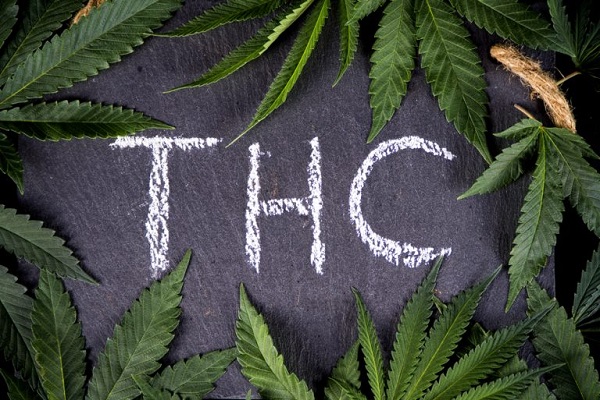
- Delta-9 THC: Delta-9 THC is the most well-known and traditional form of THC. In Florida, it is legal for medical use if obtained through the state’s medical marijuana program, which has a list of qualifying conditions. Recreational use of Delta-9 THC is illegal in Florida.
- Delta-8 THC: Delta-8 THC is a cannabinoid that has gained popularity in recent years. Laws regarding Delta-8 THC vary from state to state. Delta-8 THC is not regulated or prohibited in accordance with the legislation of Florida.
- THC-O: THC-O, or THC-O-acetate, is a synthetic cannabinoid that may have more complex legal status due to its synthetic nature. It may be considered a controlled substance in some states, but regulations can be fluid. Florida did not have specific regulations addressing THC-O.
Keep in mind that state laws can change, and new regulations may have been implemented.
How Much THC is Legal in Florida?
The allowable THC content in products hinge on the source of the THC. According to Section 581.217 of the Florida Statutes, THC derived from hemp is permissible and can be found in various forms, including salts, acids, and edibles. However, it’s crucial to note that the THC content in hemp-derived products must not exceed the strict limit of 0.3%.
Conversely, THC obtained from marijuana falls under a different set of regulations, as outlined in Section 381.986 of the Florida Statutes. This type of THC is exclusively legal for registered medical marijuana patients within the state. Registered patients have access to a range of THC-infused products, including smokable preparations, provided that these products do not surpass a THC content of 0.8%.
Summary
Florida’s cannabis landscape is marked by a complex web of laws and regulations that govern the possession, sale, and use of various forms of THC. Understanding the distinctions between THC derived from hemp and THC derived from marijuana is crucial, as each comes with its own set of rules.
For those seeking the therapeutic benefits of THC, particularly for medical purposes, it’s vital to stay updated with the latest regulations. The state’s medical marijuana program provides access to registered patients, offering a lifeline for individuals dealing with qualifying medical conditions.
However, whether you’re considering the use of medical marijuana or exploring THC products derived from hemp, one constant remains: the need for a firm grasp of the laws. The legal status of THC can change, and the allowable THC content can vary, so it’s incumbent upon individuals to consult official state sources and legal professionals for the most current information.

